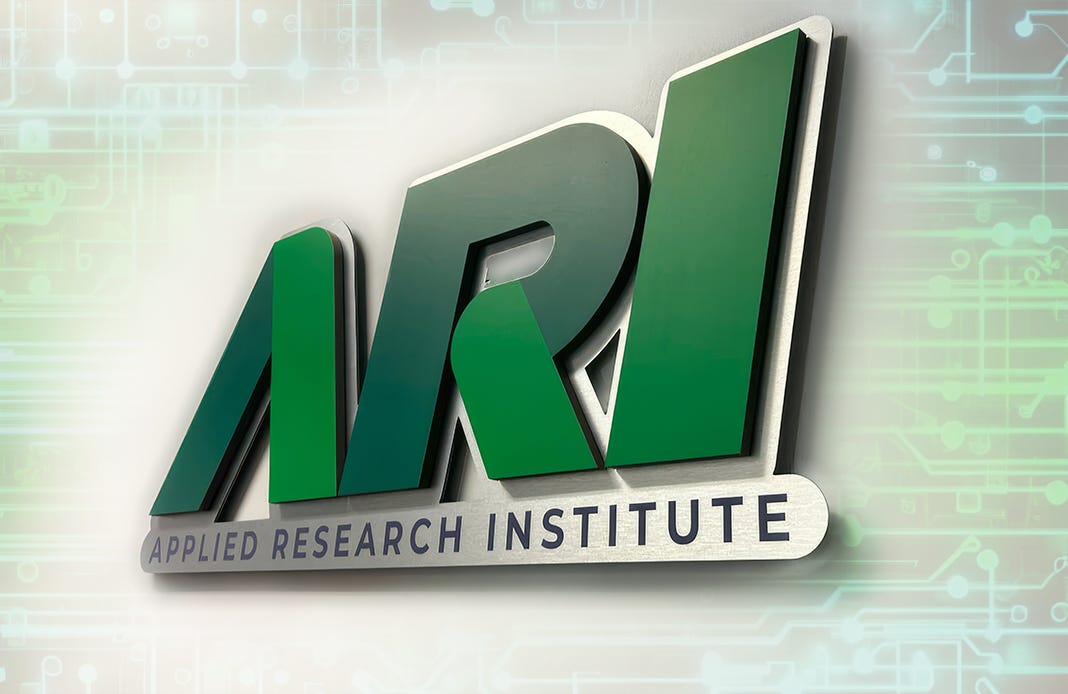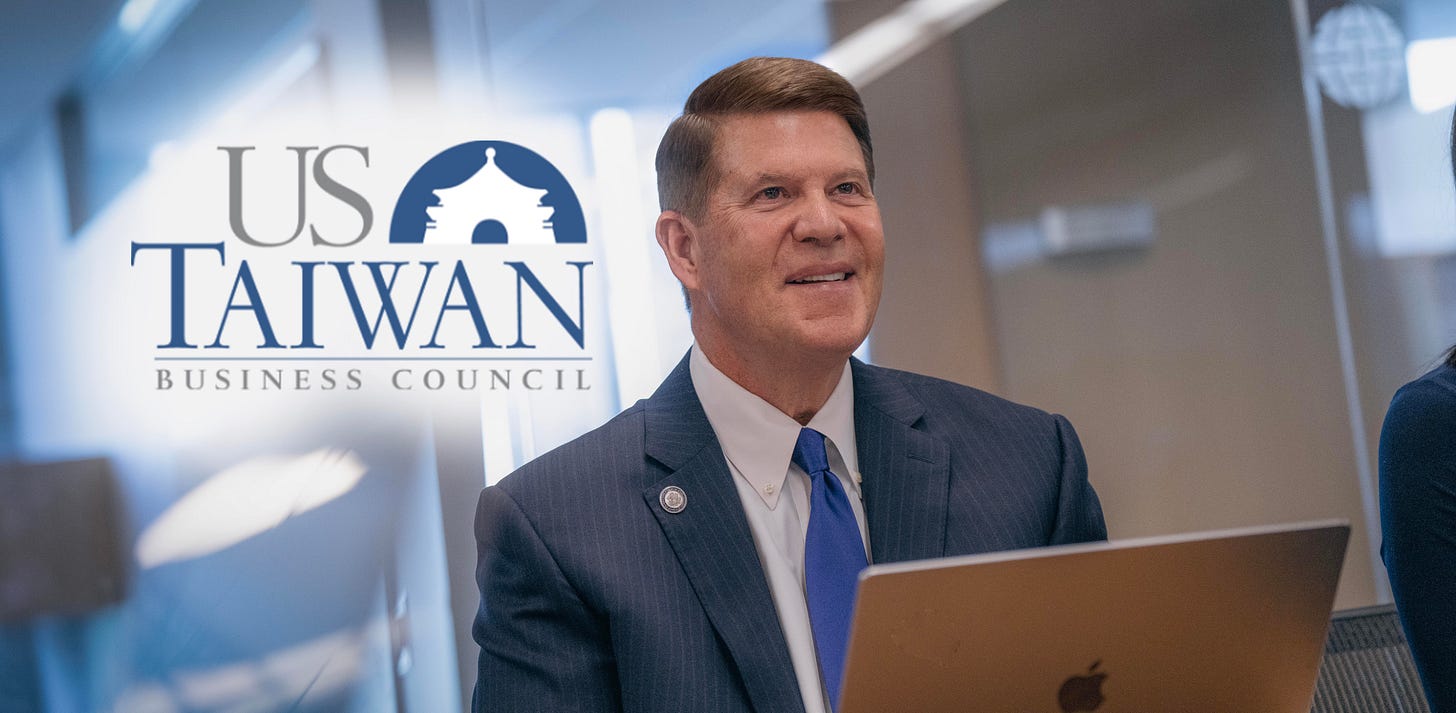Indiana’s Biotech Innovation and NATO heads to Washington
Indiana becomes a key player in Biotech innovation and NATO's 75th Anniversary Summit focuses on the role that technology plays in maintaining deterrence and a qualitative military advantage.
TABLE OF CONTENTS
Tech Diplomacy Updates
Top News of the Week
Latest News
Technology Strategy and Policy
Artificial Intelligence
Telecommunications Networks and Infrastructure
Critical Minerals
Synthetic Biology
Quantum
Advanced Aerospace Technology
Semiconductors and Microelectronics
Energy and Climate
Opinion and Commentary
ARI’s Heartland BioWorks Secures $51 Million Investment to Drive Indiana’s Biotech Innovation

News from Krach Institute for Tech Diplomacy Corporate Member, ARI: Nine months after designating Indiana as a Regional Tech Hub through the Applied Research Institute’s (ARI) Heartland BioWorks hub, the U.S. Department of Commerce’s Economic Development Administration (EDA) announced that Indiana’s hub would be receiving an approximately $51 million implementation grant.
Heartland BioWorks, a consortium led by ARI, brings together key stakeholders from industry, academia, government, and nonprofit sectors to ensure that bioproducts invented in America are also made in the US. Members include major companies like Eli Lilly, Elanco, Corteva, INCOG, and Roche, as well as academic institutions such as Purdue University, Indiana University, the University of Notre Dame, and Ivy Tech Community College.

The implementation grant was made possible by the Regional Technology and Innovation Hubs (“Tech Hubs”) program created by the CHIPS and Science Act of 2022, which was co-authored by Indiana’s U.S. Senator Todd Young.
“This grant validates Governor Holcomb’s vision for creating an economy of the future, and confirms what our ecosystem has known for a long time—that Indiana is a global pioneer in biotech production,” said ARI CEO Dave Roberts. “Heartland BioWorks is securing America’s biotech future, and this funding will provide critical support to accelerate workforce development and remove barriers for entrepreneurs bringing new biotech products to market.”
Learn more about this announcement HERE and learn more about the Krach Institute for Tech Diplomacy Corporate Member program HERE.
Tech Diplomacy Chairman Keith Krach Accepts Post as Chairman of the US-Taiwan Business Council
The US-Taiwan Business Council is pleased to announce that Keith Krach has accepted the position as Chairman of the US-Taiwan Business Council Board of Directors. Mr. Krach replaces Michael R. Splinter in the post.
Mr. Krach continues to serve as the Chairman of the Krach Institute for Tech Diplomacy at Purdue University, and Co-Chairman of the nonpartisan Global Tech Security Commission – both dedicated to ensuring technology advances freedom. Prior to leaving government, he was Under Secretary of State for Economic Growth, Energy, and the Environment, where he served as the U.S.’ top economic diplomat.
In January 2024, Mr. Krach led the annual Chairman’s delegation of the US-Taiwan Business Council to Taiwan. Arriving shortly after Taiwan’s elections, the group of senior executives from many of America’s and Taiwan’s prominent companies expressed support for Taiwan’s vibrant democracy. In his previous visit to Taiwan, he launched the Krach Institute’s Taiwan Center for Innovation and Prosperity, bestowed the Institute’s Tech Freedom Award to former President Tsai Ing-wen, and enhanced bilateral business ties.
The US-Taiwan Business Council (www.us-taiwan.org) is a membership-based non-profit association, founded in 1976 to foster trade and business relations between the United States and Taiwan. The Council provides its members with business intelligence, offers access to an extensive network of relationships, and serves as a vital and effective representative in dealing with business, trade, and investment matters.
Top News of the Week – NATO Summit comes to Washington
While the main focus of this week’s NATO Summit will be on supporting Ukraine and celebrating the 75th Anniversary of the Alliance, an important undercurrent will be the role that technology plays in maintaining deterrence and a qualitative military advantage.
Key Takeaways:
Over the past three years, NATO has published an AI strategy, a Quantum strategy, and has strengthened its capabilities to scout and invest in emerging technologies.
Outside the purview of NATO, member countries have strengthened export controls and investment screening to protect the Alliance’s technological advantages and qualitative military edge.
However, NATO members are just barely meeting the minimum spending on defense that the Alliance set in 2014, back when the world was a much safer place.
A number of NATO members still have not met these the 2% of GDP minimum and the United States and three other members (Greece, Croatia, and Italy) have actually reduced their defense spending as a proportion of GDP since 2021. This makes it difficult to see how NATO will capitalize on emerging technologies to maintain a generational lead over its rivals.
More Background:
Background Press Call Previewing the NATO Summit – White House, July 5, 2024
NATO Secretary General: “Our most urgent task at the Summit will be support to Ukraine” – NATO, July 5, 2024
As Biden slips toward the edge, NATO holds its collective breath – David Ignatius, Washington Post, July 4, 2024
Denmark chairs the inaugural meeting of NATO’s Transatlantic Quantum Community – NATO, July 3, 2024
NATO allies need a better approach to industrial strategy – Atlantic Council, July 1, 2024
Emerging and disruptive technologies – NATO, May 30, 2024
DIANA, NATO’s innovation accelerator, doubles the size of its transatlantic network – NATO, March 14, 2024
Latest News
U.S. Allies Issue Rare Warning on Chinese Hacking Group – WSJ, July 9, 2024
Japan and the Philippines sign a defense pact in the face of shared alarm over China – AP, July 8, 2024
Putin tells Xi Russia-China relations are at their 'best' – DW, July 3, 2024
The Underground Network Sneaking Nvidia Chips into China – WSJ, July 2, 2024
US Allies Say China Is Developing Attack Drones for Russia – Bloomberg, July 2, 2024
Microsoft AI Deal with UAE’s G42 at Risk Over National Security Fears – Bloomberg, July 2, 2024
China Plans Broader Push to Develop Tech Like Musk’s Neuralink – Bloomberg, July 1, 2024
Technology Strategy and Policy
Germany vetoes sale of sensitive turbine unit to Chinese group – Financial Times, July 6, 2024
Biden Awards $504 Million to Tech Investment Hubs Across US – Bloomberg, July 2, 2024
UN adopts Chinese resolution with US support on closing the gap in access to artificial intelligence – AP, July 1, 2024
Competing for the Frontier: Benchmarking the US-China Technology Competition – Force Distance Times, June 27, 2024
U.S. Moves Ahead with Plan to Restrict Chinese Technology Investments – NYTs, June 21, 2024
Artificial Intelligence
China leading generative AI patents race, UN report says – Reuters, July 3, 2024
China's ByteDance working with Broadcom to develop advanced AI chip – Reuters, June 23, 2024
How AI is changing warfare – The Economist, June 20, 2024
Telecommunications Networks and Infrastructure
Microsoft Orders China Staff to Switch From Android Phones to iPhones for Work – Bloomberg, July 8, 2024
Huawei's Harmony aims to end China's reliance on Windows, Android – Reuters, June 27, 2024
China's subsea cable drive defies U.S. sanctions – Nikkei Asia, June 26, 2024
Censorship and isolation as China bans thousands of mobile apps – Global Voices, June 25, 2024
Japan and South Korea Are Fighting Over an App at a Tense Time – NYTs, June 24, 2024
Tech war: Huawei sees HarmonyOS breaking the dominance of Android and Apple’s iOS in China – SCMP, June 21, 2024
Critical Minerals
Indonesia Says US Must Invest as Critical Minerals Race Picks Up – Bloomberg, July 8, 2024
Canada sets high bar for approving large M&A deals in critical minerals – Reuters, July 4, 2024
US intervened in Congo mine sale to Chinese arms group – Financial Times, July 4, 2024
China says rare earths belong to state in new regulation – Nikkei Asia, July 1, 2024
Synthetic Biology
With AI Tools, Scientists Can Crack the Code of Life – Wired, June 26, 2024
Non-Model Organisms Expand the Repertoire of Synthetic Biology – SynBioBeta, June 25, 2024
VIDEO – Programming Human Cells: The Next Frontier of SynBio for Human Health – SynBioBeta, May 2024
Quantum
Multiple governments around the world have secretly agreed to restrict the export of quantum computers – PC Gamer, July 8, 2024
India Calls For Quantum Standardization, Testing Labs For Quantum Communications Network Developments– Quantum Insider, July 8, 2024
2D quantum cooling system reaches temperatures colder than outer space by converting heat into electrical voltage – Tom’s Hardware, July 7, 2024
Quantum Computing Is Becoming More Accessible As Costs Drop & Cloud Access Expands - Quantum Insider, July 4, 2024
Advanced Aerospace Technology
China develops new stealth aircraft likely to be deployed on carriers – Nikkei Asia, July 8, 2024
Swarms of cheap versions of a technology we invented could overrun the American military – WSJ, July 4, 2024
Space Pioneer says part of rocket crashed in central China – Reuters, June 30, 2024
Historic Moon Mission Moves China Ahead in Space Race with U.S. – WSJ, June 25, 2024
China’s state-owned space company beats private sector to reusable rocket test – SCMP, June 24, 2024
China’s C919 jet noses closer to European certification as regulators plan visit – SCMP, June 24, 2024
Semiconductors and Microelectronics
Texas governor pursues Japan, Taiwan, South Korea chip investments – Nikkei Asia, July 6, 2024
Semiconductor, AI firms dominate venture capital deals in China amid government push – SCMP, July 4, 2024
Huawei and Wuhan Xinxin to develop high-bandwidth memory chips amid US restrictions – SCMP, July 1, 2024
A New U.S. Crackdown Is Crippling China’s Best Hope to Rival Nvidia – The Information, June 25, 2024
Energy and Climate
China Outspends the U.S. on Fusion in the Race for Energy’s Holy Grail – WSJ, July 8, 2024
EU must not be 'naive' in China EV talks, Spain economy minister says – Nikkei Asia, July 7, 2024
China and U.S. Both Eye Breakthrough EV Technology – WSJ, July 2, 2024
Opinion and Commentary
China Thrashes U.S. In Global AI Patent Race—Here’s Why That Doesn’t Mean It’s Winning The AI War – Robert Hart, Forbes, July 4, 2024
China’s National Power and Artificial Intelligence – William C. Hannas, The Diplomat, July 1, 2024
What if Russia Wins? – Carl Bildt, Foreign Policy, July 1, 2024
Europe risks falling behind US and China on AI – Prince Constantijn, CNBC, June 26, 2024
New weapons will eclipse atomic bombs. Their builders ask themselves this question – Alex Karp and Nicholas Zamiska, Washington Post, June 25, 2024
About: Tech Diplomacy Now
The Krach Institute for Tech Diplomacy at Purdue is the world’s preeminent trusted technology accelerator. As the leader of the new category of Tech Diplomacy, the Institute integrates technology expertise, Silicon Valley strategies, and foreign policy tools to build the Global Trusted Tech Network of governments, companies, organizations and individuals to accelerate the innovation and adoption of trusted technology and ensure technology advances freedom.





